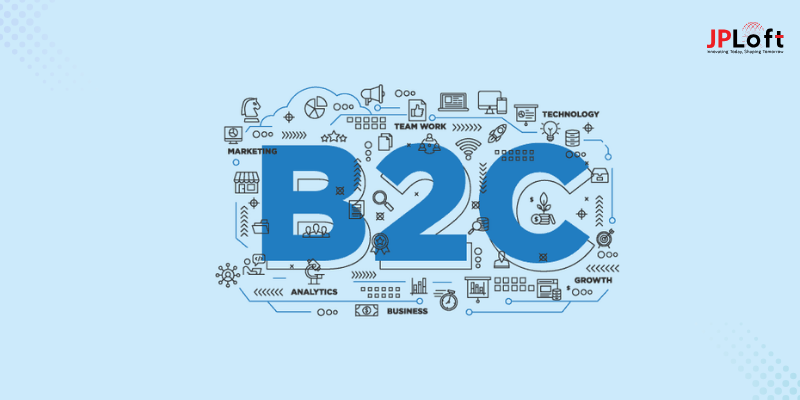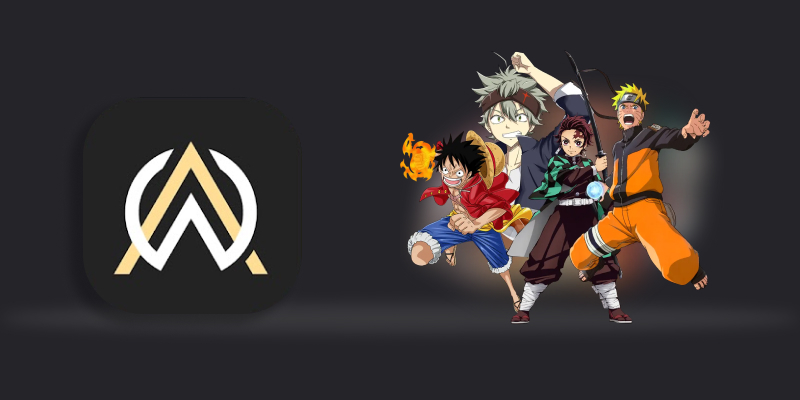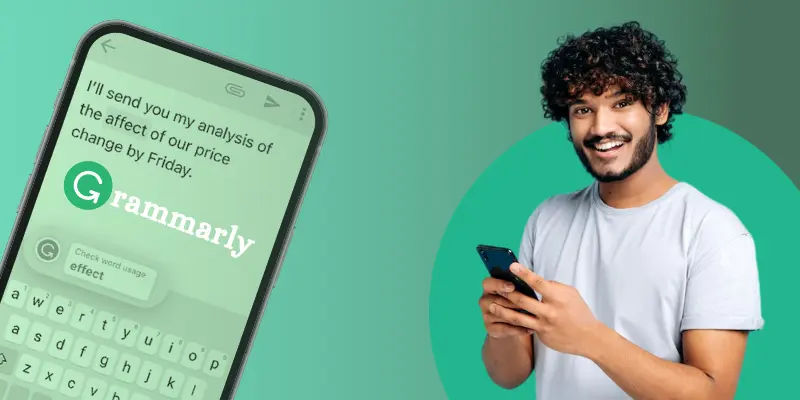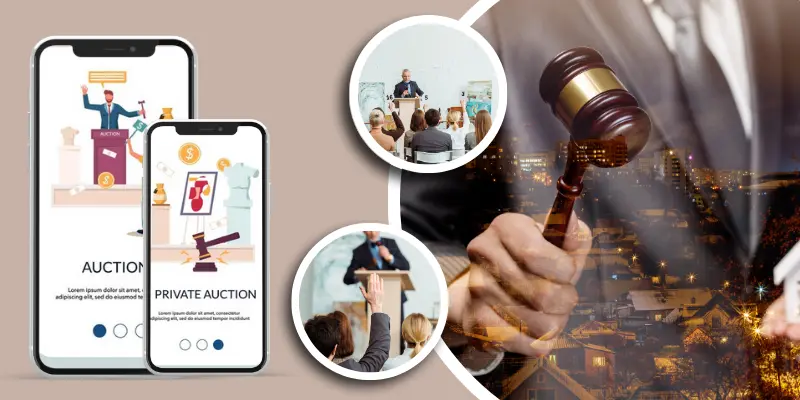B2C (Business-to-Consumer) apps have quickly become essential tools in the rapidly expanding digital commerce sphere, revolutionizing how businesses connect with their end-users and providing consumers convenient access to various products and services on demand.
With increasing consumer demands for convenience and personalized experiences, B2C Apps are increasingly crucial in improving customer engagement and satisfaction.
This introduction covers the top 10 B2C Apps that have become industry leaders by offering innovative solutions and user-centric features. These apps range from e-commerce giants like Amazon to entertainment platforms and lifestyle applications, all leveraging technology to meet modern consumers' ever-evolving demands.
Behind the success of B2C Apps lies their creators: app development companies with expertise in this space who bring innovation, technical proficiency, and user-friendliness to create user-friendly, secure applications with high-performance levels.
Through an analysis of the top 10 B2C apps, we will uncover their distinctive features and functionalities - providing insights into the contribution that B2C app Development Company had on shaping digital landscapes.
Unveiling the Top 10 B2C Apps
Top B2C Apps that successfully navigated the digital space to deliver seamless and enriching user experiences are here.
1. Amazon E-Commerce Titan
While B2C Apps may vary significantly in their capabilities and scope of features offered, no company stands head and shoulders above Amazon as an international e-commerce titan.
Their app has revolutionized online shopping with access to an unparalleled variety of products, personalized recommendations, and fast delivery services, all wrapped into user-friendly navigation with secure payment methods and excellent customer support options that continue their reign in the e-commerce sphere.
2. Uber Transforming Transportation
Uber has transformed transportation with their innovative business-to-consumer (B2C) app, providing users with an effortless cashless ride-hailing experience and seamless connectivity between drivers and passengers. Accurate time tracking, transparent pricing structures, and safety features have cemented Uber as a leader among B2C apps.
3. Netflix, the Entertainment Maestro
Netflix has long been considered an innovator of on-demand streaming entertainment services, providing access to movies, TV shows, and documentaries at a user's fingertips with personalized recommendations and offline viewing options for every imaginable genre.
Their user-friendly interface and commitment to original content have cemented Netflix as a leader within the B2C entertainment sector.
4. Starbucks Elevates Coffee Culture
Starbucks, one of the leading names in coffee retailing, has seamlessly implemented technology to elevate customer experiences within its stores and online. Their B2C app facilitates mobile payments and enables users to personalize orders, earn rewards, and access exclusive promotions, all enhancing customer relationships worldwide.
This seamless integration has cemented Starbucks' connection with its customer base worldwide.
5. Instagram for Visual Storytelling
Instagram, owned by Facebook, has rapidly emerged as an innovative B2C visual storytelling app with billions of active users worldwide. Businesses using Instagram to engage their target audiences visually through captivating photos and videos can leverage features like Stories, IGTV, and shopping integration as essential tools in telling a visual tale to consumers.
6. Airbnb Redefining Hospitality
Airbnb's B2C app has revolutionized hospitality by connecting travelers with unique accommodations worldwide. With an intuitive design, a secure booking process, and host/guest communication features that disrupt traditional lodging models, Airbnb offers personalized travel experiences, creating a sense of belonging among users.
7. WhatsApp as an Instant Communication Powerhouse
WhatsApp, owned by Facebook and offering end-to-end encryption and multimedia sharing features, has proven to be an essential business communication platform. Businesses leveraging its API integration or catalog features can access instantaneous customer engagement solutions via WhatsApp.
8. Walmart
Merging Convenience and Savings Walmart's consumer app demonstrates how seamlessly convenience can meet cost-effectiveness for shoppers. Equipped with features such as Scan & Go in-app pharmacy services and savings catcher tools - its app ensures shoppers enjoy an effortless shopping experience combining in-store with online functions to provide an exemplary B2C experience.
9. Fitbit: Empowering Health and Wellness
Fitbit has long been recognized for its B2C app's role in health and wellness. Catering specifically to fitness enthusiasts, Fitbit synchronizes seamlessly with Fitbit devices to monitor physical activity, sleep patterns, and overall health, offering personalized insights, goal-setting features, and an engaged community that truly sets it apart in this space.
10. Tinder Revolutionizes Dating Dynamics
Tinder has upended the dating landscape with its groundbreaking B2C app. Utilizing a swiping mechanism, Tinder matches individuals based on mutual interests and proximity. Thanks to its user-friendly interface, interactive features, and gamified approach to dating, Tinder has quickly become an international sensation that has altered modern relationships worldwide.
Also Read: Benefits And Types Of B2B ECommerce Platforms
Exploring the Top Features of B2C Apps
The top features of B2C mobile app development services that contribute to their effectiveness in today's competitive marketplace are illustrated below.
User-Friendly Interface
At the core of every successful B2C app is its user-friendly interface, designed for optimal customer engagement and retention. Providing customers with an enjoyable user experience from download should ensure a pleasant user journey that offers clear menus and concise information.
User satisfaction increases through intuitive interface design, leading to repeat usage and positive reviews that attract new users.
Customer Profiling and Customized Experience
A standout feature of B2C Apps is their ability to personalize user experiences through advanced algorithms and machine learning technologies, offering tailored recommendations based on individual behavior and preference analysis.
Personalization boosts customer satisfaction and increases conversions by engaging users more closely with content that resonates with them.
Secure and Easy Transactions
At the core of B2C Apps lies their transaction capabilities; thus, they must provide an effortless payment experience, using trusted payment gateways and adopting innovative encryption technology to ensure users' sensitive information is safe from exposure or breach.
User experience can also be enhanced through seamless transaction completion, leading to lower cart abandonment rates and increasing app conversion rates.
Push Notifications for Engagement
Push notifications serve as the direct communication link between businesses and app users, significantly increasing user engagement through customized alerts, promotions, or updates - keeping customers up-to-date and informed at all times.
B2C apps may use push notifications effectively by sending personalized alerts that inform about sales promotions or product releases, keeping consumers connected while engaging them directly in conversational dialogue with businesses and brands.
However, it's essential that notifications don't become excessive for users and instead become perceived as value instead of nuisances.
Social Media Connectivity
Integration between B2C Apps and social media platforms has become essential in our interconnected age, providing users with a direct way to share experiences or highlight products directly within an app - this acts as organic marketing while expanding the reach and credibility of your app. Furthermore, connecting through social media enables personalized onboarding procedures and authenticating users.
Offline Accessibility
Top B2C Apps offer users functionality without an active Internet connection, such as browsing products and adding them to a cart. This enables a seamless experience regardless of users' location or connectivity status.
Reviews and Ratings
Customer feedback is integral for businesses, and B2C Apps provide users with an avenue for them to express their opinions through reviews and ratings. Integrating this feature enables potential customers to make educated decisions based on experiences shared by others.
Businesses can constructively utilize customer feedback to enhance their products, services, and app experience while building trust among their users.
Read More: Top 10 Trending Mobile eCommerce Apps That Will Dominate in 2023
Multi-Channel Support
Top B2C Apps recognize the significance of providing support on multiple channels - chat, email, or phone support. Making available several avenues through which customers may seek help ensures their queries can be quickly addressed; creating such a comprehensive support structure increases customer loyalty as users know service is always available when needed.
Gamification for User Retention
To increase user engagement and retention, some B2C Apps incorporate gamification elements. Gamification involves including game-like aspects into their design, such as rewards, challenges, and loyalty programs that make user interactions more interactive and enjoyable while creating an atmosphere of loyalty to keep returning to the app regularly - it provides entertainment while building loyalty, too!
Analytics and Insights
Data-driven decision-making is at the core of every successful business - B2C Apps included. Integrating robust analytics tools allows companies to track user behaviors, preferences, and trends so that they may develop targeted strategies, optimize user experiences for maximum impact, and tailor marketing efforts to maximize return, ultimately driving growth and success for all involved.
Understanding the Cost Factors of B2C App Development
Understanding the key drivers influencing B2C app development costs is paramount for companies seeking to undertake this transformation journey.
Complexity of Features and Functionality
A B2C app's feature set and functionality play an instrumental role in its overall development cost; the more intricate or advanced its features are, the higher its implementation cost.
Features like in-app purchases, real-time messaging, push notifications, and custom user experiences all add layers of complexity. Customization to meet the target audience's needs may provide enhanced user experiences but will significantly increase development costs and costs.
Diverse Platform and Device Considerations
B2C apps must run on various platforms and devices - iOS smartphones and Android tablets alike - thus adding further complexity to the development process. Every forum requires unique coding and design considerations, which may add an extra step during production.
Compatibility with various devices and screen sizes increases development time and costs; businesses must carefully consider their target audience and market trends when prioritizing platforms to balance user reach with development costs.
Must Read : Cost To Create an E-commerce App Like Amazon
User Interface and Experience Design (UI/UX Design)
The app design enormously affects user engagement and satisfaction, necessitating skilled professionals who possess in-depth knowledge about a brand's target audience, industry requirements, and aesthetic standards to create intuitive yet visually appealing UI/UX designs for B2C apps.
Investment inexperienced designers may add costs during development, but their contributions pay dividends by improving user satisfaction and increasing your app's chances of succeeding in an increasingly competitive market.
Integrating Third-Party Services
Many B2C Apps utilize APIs or third-party services like payment gateways and social media logins from third parties as part of the development process, but using such integration requires extra costs that need to be budgeted for as well.
Although such integration services can speed development time significantly, you should consider potential integration complexities, ongoing maintenance requirements, and fees associated with third-party integration services when planning.
Security and Compliance Requirements
Securing B2C app development projects should always consider security, particularly when handling sensitive user data or financial transactions.
Implementing effective measures while adhering to industry regulations and standards may increase development costs significantly; investing in secure coding practices, encryption solutions, and regular security audits is crucial in protecting user information while upholding consumer trust.
Testing and Quality Assurance
Ensuring an exceptional user experience requires rigorous testing throughout the development lifecycle, including testing on multiple devices, operating systems, network conditions, and network speeds to identify and solve potential issues quickly.
Planning the budget for B2C Apps should consider the costs associated with both manual and automated testing processes to deliver reliable apps without bugs and glitches.
Conclusion
B2C apps have profoundly transformed the digital landscape, providing consumers unprecedented convenience and accessibility.
Here is an exemplary list of B2C Apps highlighting some of the finest examples of mobile app development; each app shows off mobile development companies at their finest as they meet consumer demands head-on. These top ten B2C Apps showcased here not only reflect prowess in terms of code development but also demonstrate deep consumer insights.
B2C app markets have quickly become battlegrounds of innovation, where companies vie with each other to outshine one another by creating seamless user experiences. From e-commerce titans like Amazon to fitness and entertainment apps that cater to various consumer niches - app development can cover it all!
Now that smartphones have become essential tools in daily life, B2C Apps provide access to many services, products, and entertainment options. Their success can be credited to their functional capabilities and the efforts made by mobile app development companies to keep abreast with technological trends.
FAQs
1. What Are B2C Apps (Business-to-Consumer Apps)?
B2C apps, or Business-to-Consumer applications, are software designed to facilitate transactions and interactions between businesses and individual consumers. They aim to enhance consumers' purchasing experiences directly from companies by offering platforms where goods or services may be purchased now.
2. How are B2C Apps different from other forms of applications?
B2C apps specifically cater to end consumers and prioritize providing an exceptional and user-friendly experience for individual consumers compared to business-to-business (B2B) transactions, unlike these applications that prioritize transactions between entities instead of prioritizing individual customer needs and preferences over business needs and preferences.
3. What are the key characteristics of successful B2C apps?
Successful apps often feature user-friendly interfaces, secure payment methods, tailored recommendations, and responsive customer support, which contribute to an enhanced customer experience and encourage repeat usage.
4. What strategies can B2C Apps use to increase customer engagement?
B2C apps can enhance customer engagement via push notifications, personalized offers, loyalty programs, and social media integration. Engaging content and user-friendly interfaces further contribute to keeping their target users interested and involved with the experience.
5. Are security considerations an essential issue in B2C applications?
Indeed, they should be seen as paramount concerns since B2C Apps deal with sensitive user data and financial details, making robust security measures such as encryption and secure payment gateways crucial in protecting customer privacy while building trust.
6. Can B2C Apps benefit small businesses?
Yes. B2C Apps give small businesses a platform to reach a broader audience, gain visibility, and compete effectively in the digital market. Furthermore, these apps enable companies to engage directly with customers while building brand loyalty.
7. What role do analytics play in B2C apps?
Analytics in B2C Apps enables businesses to understand user behavior, preferences, and trends more accurately by analyzing the data collected. By making informed decisions based on such analyses, personalizing user experiences for better customer experiences, and optimizing marketing strategies to suit customer demands, analytics is an integral element for business-to-customer applications (B2C).
8. How are B2C Apps using social media for marketing purposes?
B2C apps often integrate social media features to allow users to share experiences, purchases, and recommendations and help businesses run targeted marketing campaigns to reach a broader audience.
9. What challenges do businesses encounter when developing and maintaining B2C apps?
Challenges associated with creating and maintaining consumer apps include keeping up-to-date with technology, providing seamless user experiences across devices, addressing security concerns, and adapting to consumer expectations as they change; regular updates and customer feedback play a vital role in meeting this obstacle head-on.
10. Are B2C Apps only for retail businesses?
No. While commonly associated with e-commerce, these applications span various industries, including healthcare, entertainment, and travel - any business wishing to interact directly with consumers would find such an app invaluable.













Share this blog